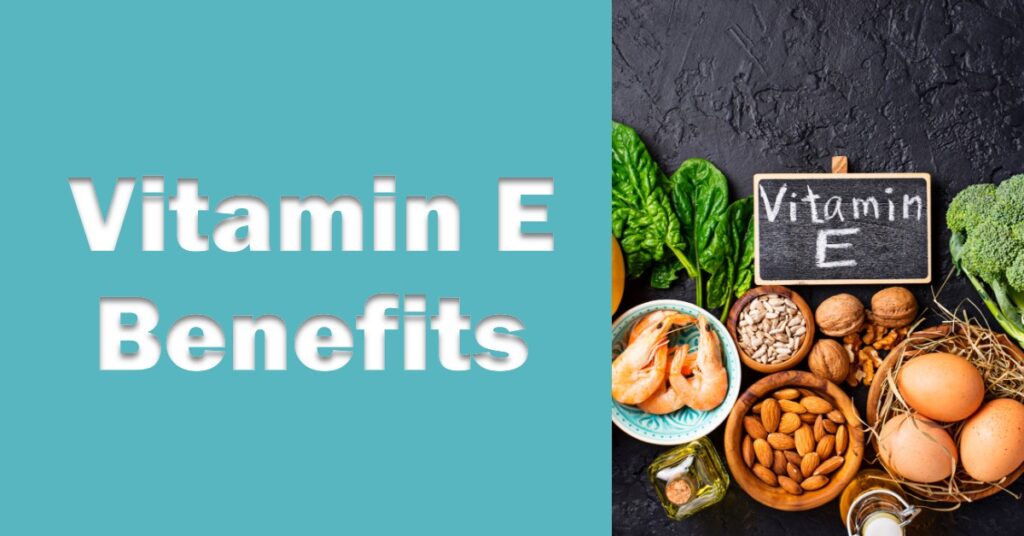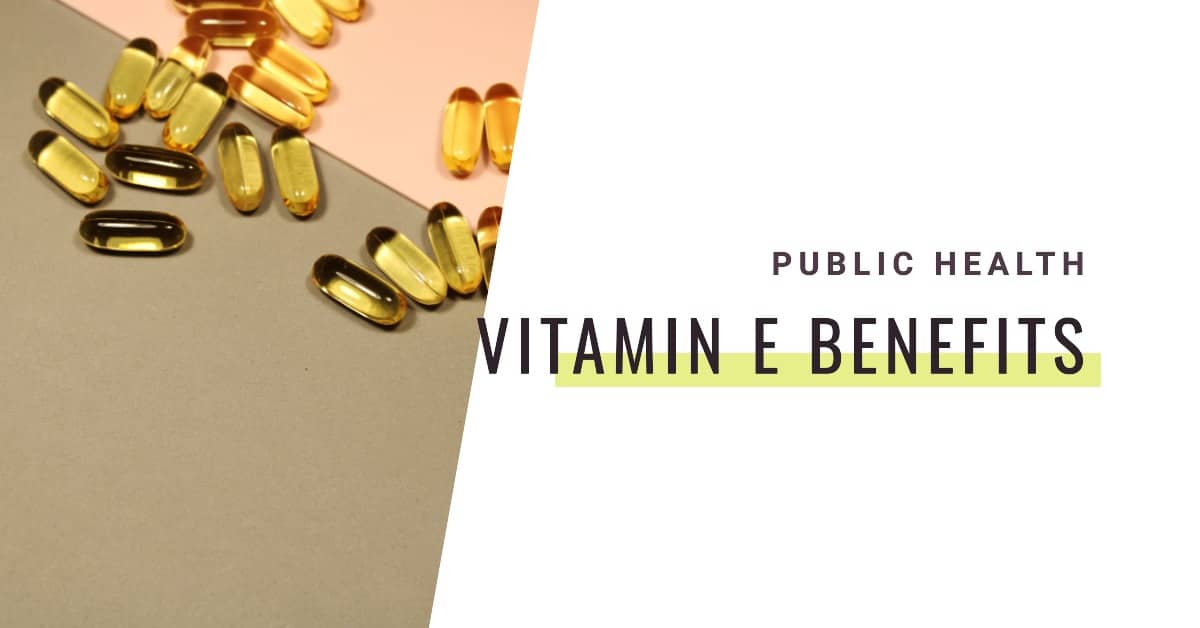Vitamin E is one of the most important nutrients for your body. It is essential for cell growth, immune function, wound healing, and maintaining healthy skin. In fact, daily intake of vitamin E supplements is recommended to help support a healthy cardiovascular system, reduce the risk of heart disease and improve circulation.
Vitamin E also acts as an antioxidant in your body by neutralizing free radicals produced through normal metabolism or environmental stressors such as smoking, pollution, stress and eating red meat. AnOxidized or unhealthy body will produce more free radicals than a healthy one so the more antioxidants you have the better. Therefore taking a high-dose supplement is recommended because it supports your natural ability to produce enough vitamin E.
What is Vitamin E?
Vitamin E is a fat-soluble antioxidant that helps maintain healthy cell membranes and protect against oxidative stress. It is also essential for growth and development in children, and it supports a healthy ageing process. Vitamin E deficiency can lead to vision problems, immune disorders, impaired fertility, and increased risk of heart disease. Vitamin E is typically found in plant-based oils such as almonds, avocados, sunflower seeds, olives, and olive oil.
Animal-based sources include eggs and fortified cereals. Vitamin E is considered an essential nutrient because the human body does not produce it, and it is therefore required for good health. It plays a critical role in cellular respiration, immunity, DNA repair and prevention of ageing. Vitamin E has antioxidant properties that help neutralize harmful free radicals in the body. It may also reduce the risk of certain types of cancer, lower bad cholesterol levels in the blood, and promote weight loss by increasing metabolism.
Benefits of Vitamin E
Vitamin E is an antioxidant that protects your soft tissues from oxidative damage and helps in maintaining healthy skin, muscles and bones. It also plays a crucial role in weight loss as it increases metabolism and helps in decreasing cholesterol level in the blood. It reduces the risk of certain types of cancers, cardiovascular diseases, skin disorders, and degenerative diseases.
Daily intake of vitamin E has been found to reduce the risk of heart disease and certain cancers, such as lung, stomach, and colon. Vitamin E is also essential for healthy skin and immunity as it helps in growth and development of the body. It also acts as a natural sunblock as it has lesser chances of skin damage.

Recommended Daily Dose of Vitamin E
Vitamin E is generally recommended to consume 200 mcg daily. However, many studies suggest that people with high blood pressure should consume higher doses up to 800 mcg. Vitamin E is found in oils and seeds of plants. It is easy to be consumed by animals, but humans are unable to make it as a body compound. So it needs to be consumed as an additive or supplement.
Vitamin E supplements are manufactured from various oils and are available in various forms. Vegetable oils such as corn, sunflower, soybean and soya are used to produce vitamin E supplements. It is also added to margarine and other food products as an antioxidant.
Where to find Vitamin E in food?
Vitamin E is found in certain foods, such as nuts such as almonds and sunflower seeds, olives, avocados, spinach, tomatoes and green leafy vegetables. There are certain oils present in certain foods that are good sources of vitamin E and can be consumed. So you can add these vegetables and fruits to your everyday diet. Almonds: They are a good source of vitamin E and are easily available.
You can also make almond milk at home. Spinach: It is a rich source of vitamin E and other antioxidants. You can also add it to salads as a side dish. Nuts: They are perfect for a healthy diet and are good sources of vitamin E. You can also make nut milk at home.
Other benefits of consuming Vitamin E
Vitamin E protects the cells from oxidative stress, which can lead to age-related diseases such as heart disease, diabetes, and certain cancers. Vitamin E is also required for the absorption of iron, calcium, zinc, and fatty acids. Studies suggest that consuming vitamin E supplements may improve fertility in men as well as women by improving sperm count and motility.
Vitamin E supplements may also reduce the risk of eye disease, as well as certain types of cancers. Low levels of vitamin E in the blood may be an indicator of a metabolic disorder called metabolic syndrome. This syndrome is characterized by excess blood triglycerides, blood pressure, and blood sugar levels.
Which form of Vitamin E is best?
Studies suggest that natural forms of vitamin E such as alpha-tocopherol are the best. Alpha-tocopherol is found naturally in foods and is easily absorbed by the body. Other forms of vitamin E are synthetic and are more likely to be stored in the liver as non-active compounds. Natural forms of vitamin E are better because they are easily absorbed by the body and do not need to be activated by enzymes in the liver.
Studies suggest that alpha-tocopherol is the most effective form of vitamin E for supporting heart health, fighting against cancer, promoting weight loss, and improving immunity. Alpha-tocopherol is the most plentiful natural form of vitamin E found in foods. It is also the most effective form in supporting heart health and fighting against cancer.
Cautions with Vitamin E Supplements
Natural forms of vitamin E are better than synthetic forms because they are easily absorbed by the body and do not need to be activated by liver enzymes. However, studies have shown that the synthetic form of vitamin E called tocotrienol is well-tolerated and safe. Therefore, natural forms of vitamin E such as alpha-tocopherol are recommended.
While vitamin E supplements can be beneficial in boosting immunity and maintaining healthy blood pressure, small amounts are not harmful. However, high doses of synthetic or vitamin E can lead to unwanted side effects, so it is important to consume supplements in recommended amounts.
It is best to consume supplements that contain vitamin E mixed with other essential nutrients such as vitamin C and beta-carotene to help boost overall health and prevent diseases. You can also consume vitamin E with a meal or snack that contains other healthy ingredients for maximum benefits.
Summary
Vitamin E is an essential nutrient that provides protection against free radicals that are produced during normal metabolism or environmental stressors such as smoking, pollution, stress and eating red meat. Vitamin E is typically found in plant-based oils such as sunflower seeds, olives and avocados. It is also added to margarine and other food products as an antioxidant.
Daily intake of vitamin E is recommended to support heart health and prevent certain cancers, weight loss, protection against oxidative damage, and immune function. Natural forms of vitamin E such as alpha-tocopherol are the best form of vitamin E because they are easily absorbed by the body and do not have to be activated by the liver enzymes.




